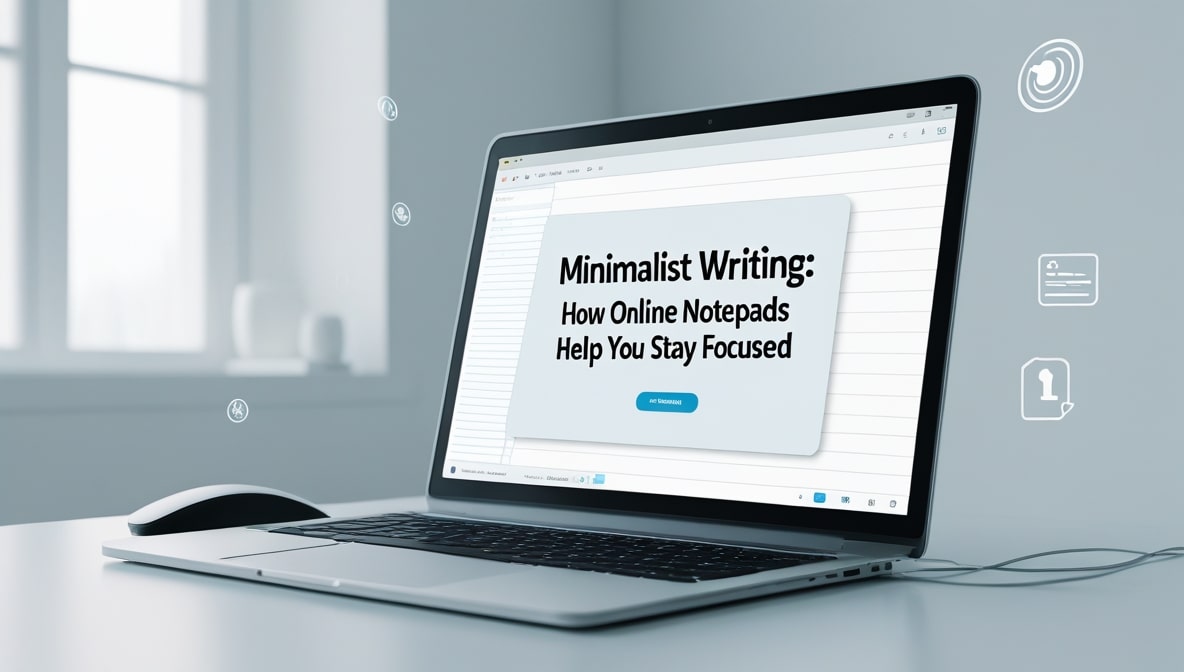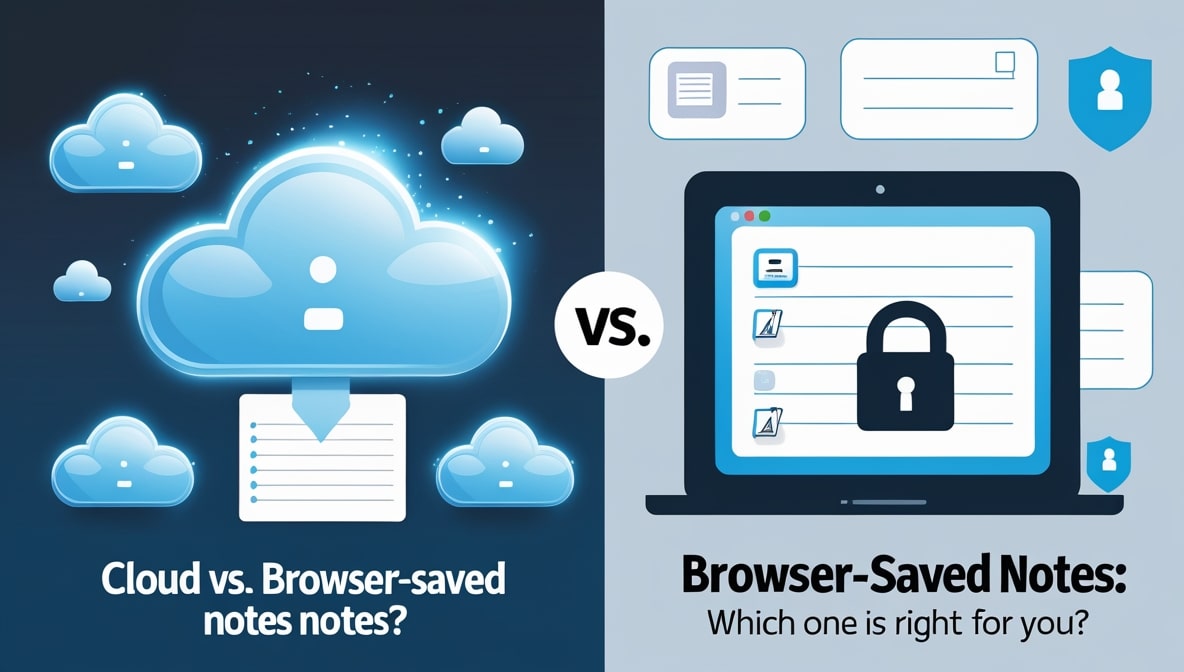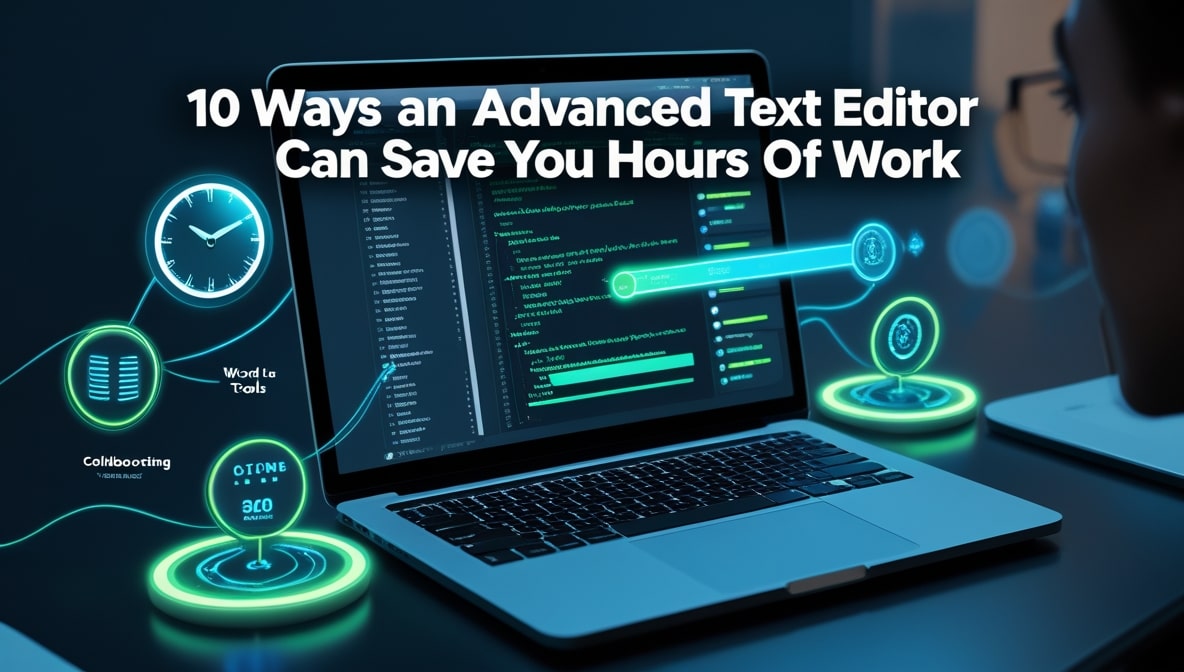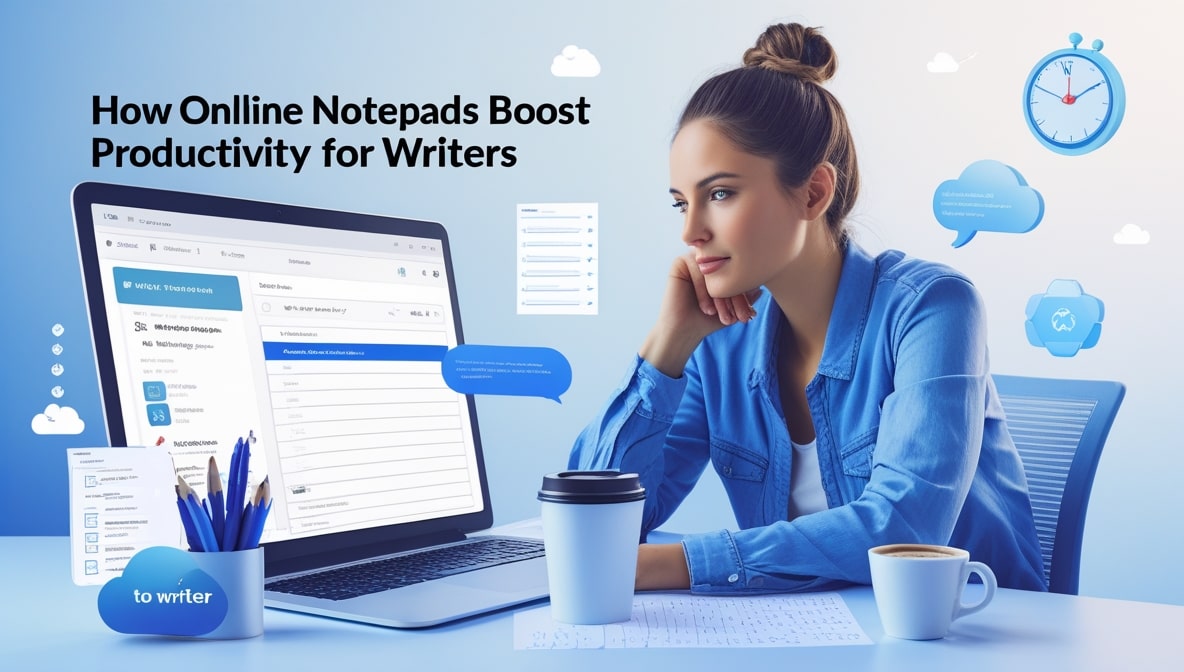The Future of Writing: Why Online Notepads Are Replacing Traditional Tools
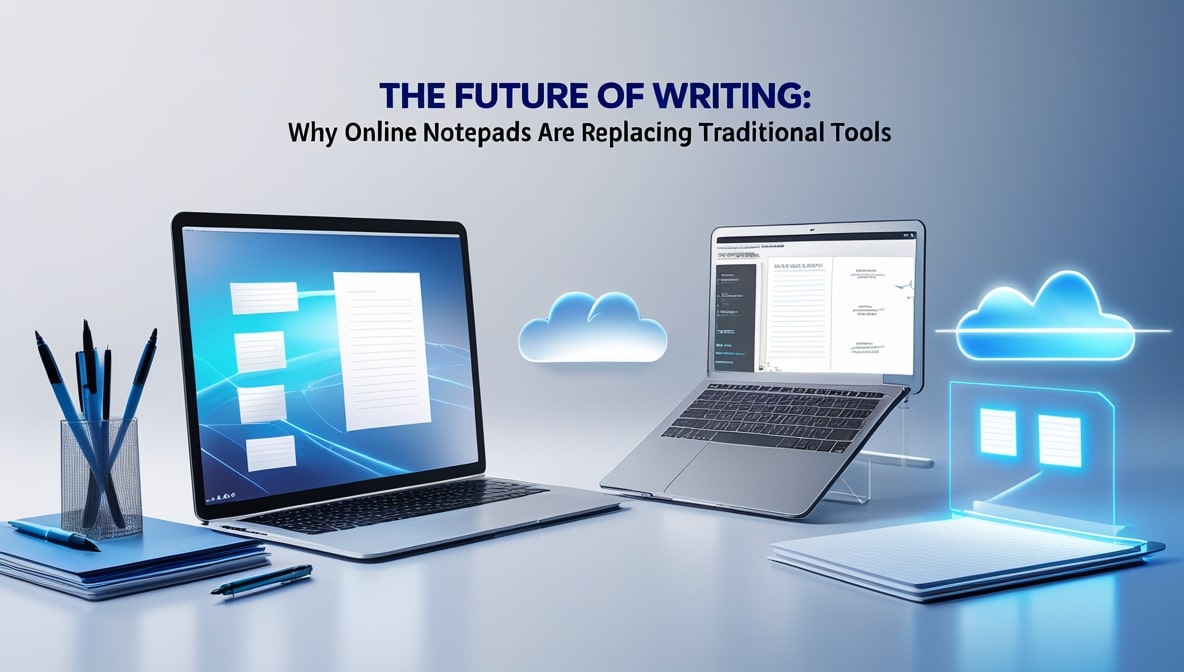
It’s a little past five in the evening on a Sunday here in Colombo. The day is starting to cool, the sky is softening into those incredible tropical sunset colours, and it’s one of those quiet, reflective moments that’s just perfect for writing. Think for a moment about the classic, romantic image of a writer. What do you see? Maybe a dusty old typewriter, clacking away furiously. Or perhaps a giant, beige desktop computer from the 90s, with a monstrous CRT monitor and a word processor that took five minutes to load. For a long time, these were the tools of the trade.
They were heavy, they were clunky, and they were firmly anchored to a single desk. But the way we live, work, and create has completely transformed since then. Writing is no longer a static activity. It’s fluid, it’s mobile, it’s collaborative. And the tools we use are finally starting to catch up. The future of writing, it turns out, isn't about more features and more complexity. It’s about a radical shift towards simplicity, speed, and connection. And at the heart of this revolution is the humble, yet powerful, Online Notepad.
The Slow, Inevitable Demise of the Bloated Word Processor
For decades, the undisputed king of writing was the traditional word processor. It was a marvel of its time, a digital Swiss Army knife that could do everything from writing a novel to designing a birthday party invitation. But over the years, in a relentless pursuit of adding more features, it became bloated. It became slow. It became a labyrinth of ribbons, menus, and obscure options that 99% of us have never, and will never, use.
Opening a simple document can feel like firing up the engines of a jumbo jet. This complexity creates friction, a subtle but constant barrier between you and the simple act of putting words on a page. These programs are relics of an older era of computing, a time when software was something you bought in a box and owned like a piece of furniture. That era is over.
The Critical Need for Speed in a World of Fleeting Thoughts
Our modern lives are lived in the margins. The best ideas don't always arrive when we’re sitting dutifully at our desks. They strike when we’re on the move, in between tasks, in those brief, quiet moments of inspiration. You have a brilliant opening line for your article pop into your head while you're waiting for a coffee, or you solve a nagging plot point while on the bus. In these moments, speed is everything.
If it takes more than a few seconds to open an app and start typing, the idea can vanish as quickly as it came. This is where a lightweight Online Notepad completely outshines its heavyweight predecessors. It loads instantly. It’s always just a browser tab away. It reduces the time between thought and text to virtually zero. The future of writing tools is defined by this immediacy, by their ability to capture ideas at the speed of thought.
A Workspace That Follows You, Not the Other Way Around
The very concept of a single, primary computer is becoming a thing of the past. Our digital lives are distributed across a network of devices. I might start drafting an article on my laptop at a co-working space in the morning, add a few notes from my phone while I’m in a tuk-tuk in the afternoon, and do the final edits on a tablet at home in the evening. Traditional software makes this workflow clumsy and difficult, involving emailing files to yourself or messing with USB sticks. A modern, cloud-based Online Notepad makes it seamless and invisible.
Your work isn’t trapped on a specific hard drive; it lives in your own personal cloud, tied to you, not your machine. This fundamental shift from device-centric to user-centric writing is the future. It’s the freedom to work wherever and however you want, with the confidence that your latest draft is always right there with you.
Collaboration That’s Live and Dynamic, Not Emailed Back and Forth
Remember the old way of collaborating on a document? You’d write your draft, attach it to an email as Draft_v1.docx, and send it off. Your colleague would make changes, save it as Draft_v2_edits.docx, and send it back. It was a slow, sequential, and deeply frustrating process that always ended in confusion about which version was the "real" one. The future of writing is inherently collaborative and simultaneous.
A shareable Online Notepad is built for this reality. You can send a single link to your co-author or editor, and you can both be in the document at the same time, watching each other’s cursors move, making changes, and leaving comments in real-time. It’s a live, dynamic, and fluid conversation, not a series of disconnected monologues. This is how modern teams create, and the tools of the future are designed to make this as easy as sharing a link.
The Resurgence of Minimalist, Distraction-Free Environments
We are living in an age of unprecedented digital distraction. Our screens are a constant battle for our attention. In response, there’s a growing movement towards "deep work," the ability to focus without distraction on a cognitively demanding task. Writing is the quintessential deep work task. The future of writing tools understands this, and it’s why so many of them are embracing minimalism.
A great Online Notepad provides a clean, serene, and distraction-free writing environment. It strips away all the unnecessary visual clutter, leaving just you and the text. This isn't a regression; it’s a conscious and sophisticated design choice. It recognizes that in order to think clearly, we need digital spaces that are quiet, not ones that are constantly shouting for our attention. The future of writing tools will be judged not just by the features they have, but by the distractions they remove.
Security and Privacy as a Default, Not an Optional Extra
As more of our lives and work move online, the security of our data has become a paramount concern. For a long time, the argument was that offline, traditional tools were safer. But that’s a dangerously outdated notion. An offline document can be permanently lost in a hard drive crash, destroyed in a fire, or stolen along with your laptop. The future of writing tools is built on a new paradigm of security.
Features like end-to-end encryption are becoming standard, ensuring that only you, the writer, can ever access your work. Furthermore, online tools give you more granular control. The ability to share a sensitive draft with an expiring link, which self-destructs after one view, offers a level of controlled access that a simple email attachment could never provide. The future is not just about convenience; it’s about having smarter, more robust ways to protect our most valuable asset: our ideas.
The Universal and Future-Proof Language of Markdown
For decades, our writing has been locked away in proprietary file formats like .docx. A document you create today might be difficult or impossible to open with the software of 2045. There is a powerful shift happening towards a simpler, more universal, and future-proof standard: Markdown. It’s a plain text-based syntax that allows you to format your writing in a way that is readable to both humans and computers.
An Online Notepad that embraces Markdown is embracing the future. A document written in this format is not tied to any single company or piece of software. It’s open, it’s transparent, and it’s timeless. You can be confident that the articles and notes you write today will be perfectly preserved and accessible for decades to come, no matter how much the technology changes around them.
In the end, the shift we’re witnessing is a profound one. It's a move away from the idea of software as a heavy, complicated product we buy, and towards the idea of a writing environment as a light, intelligent, and ever-present service. The tools are becoming simpler on the surface but infinitely more powerful underneath. They are shedding the baggage of the past to focus on the core needs of the modern writer: speed, flexibility, focus, and connection. The future of writing isn't some far-off, science fiction concept. It’s already here. It’s in the browser tab you have open right now, in the clean, quiet space of a modern Online Notepad, patiently waiting for your next idea.
